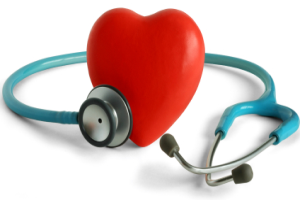Watch the video and learn more about “What is cholesterol?”
 You might be wondering what is cholesterol after your doctor has told you that you have a “high cholesterol.”
You might be wondering what is cholesterol after your doctor has told you that you have a “high cholesterol.”
Maybe your doctor has mentioned to you the following terms during your visit at his clinic: serum cholesterol, dietary cholesterol, LDL and HDL. And you’re wondering what these terms are.
Here are some facts and tips to help you understand better about “what is cholesterol”.
What is Dietary Cholesterol?
Dietary cholesterol is in the food we eat. It is mostly found in meat, eggs and fish. It is also found in dairy products such as lard and hydrogenated oils. Cholesterol is never found in “plant-based” food.
What is Cholesterol?
Cholesterol is a fatty, wax-like substance found naturally in all body cells. It is used to build cells, make hormones, and aids in food digestion. It is needed for proper brain and nerve function.
The liver manufactures cholesterol and the bloodstream transports cholesterol to other parts of our body where it is needed. Cholesterol has to latch on to molecules called lipoproteins to travel around successfully.
To give you a better picture—the bloodstream is the highway, and the lipoproteins are the cars.
Serum Cholesterol
Serum cholesterol is the cholesterol in the bloodstream. There 2 types of serum cholesterol:
1. LDL (low-density lipoprotein) cholesterol clogs the arteries. Because LDLs deposit cholesterol in the arteries, it is known as “bad cholesterol”. (Remember it starts with L and it means “lousy”.)
2. HDL (high-density lipoprotein) cholesterol cleans the arteries and is good for you. HDLs are considered as good cholesterol because they carry unneeded cholesterol away from the cells and back to the liver, where it is broken down for removal from the body. (This one starts with H and it means “hero”.)
If there is too much cholesterol for the HDLs to pick up promptly, or if there are not enough HDLs to do the job, cholesterol can form plaque that sticks to artery walls and may eventually cause heart disease. If everything is functioning as it should, this system remains in balance.
It is very important to distinguish between serum cholesterol and dietary cholesterol. Eating foods high in dietary cholesterol can raise serum cholesterol. Even if you never eat any food containing dietary cholesterol you would have some amount of serum cholesterol because the body produces its own cholesterol.
If you are diagnosed with high cholesterol, it is very imperative for you to start a heart-smart diet immediately by cutting down or cutting out animal products. Plant-based foods or vegetarian diet can help lower your LDL and raise your HDL. I believed your doctor must have told you about this diet already.
Now you have some knowledge about what is cholesterol.
Sources:
Phyllis Balch, Prescription for Nutritional Healing, p. 491
Joy Bauers, Food Cures, p. 129
Vance Ferrell, Natural Remedies Encyclopedia, p. 435